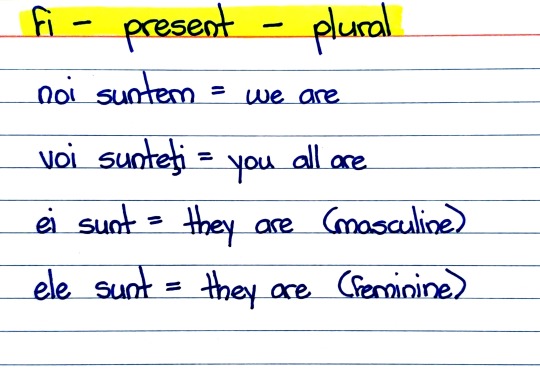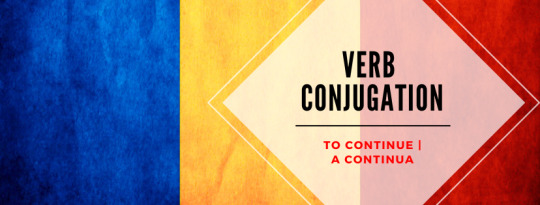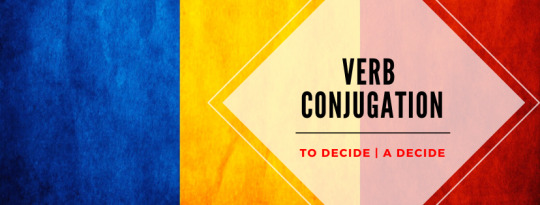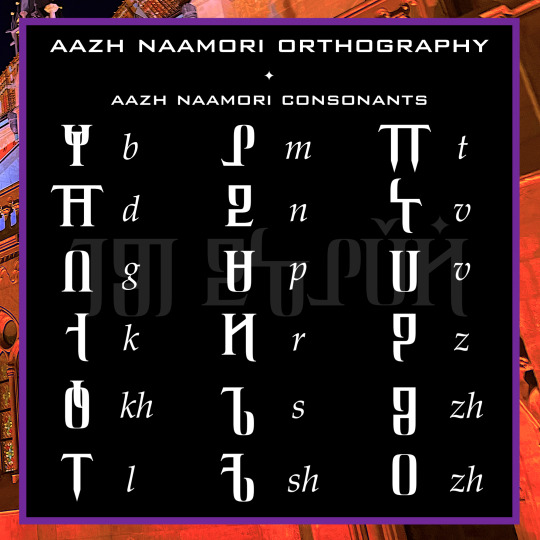#romanian conjugation
Explore tagged Tumblr posts
Text
Fi - Present - Plural (Romanian)

Patreon
#studyblr#notes#langblr#language#romanian#romanian studyblr#romanian notes#romanian langblr#romanian language#language learning#learning languages#romance languages#latin languages#learning romanian#romanian conjugation#verb conjugation#conjugation#verbs#romanian verbs
9 notes
·
View notes
Text

🔵 PRESENT 🔵 eu continui - I continue tu continui - you continue el/ea continuă - he/she continues noi continuăm - we continue voi continuați - you continue ei/ele continuă - they continue
🟡 PAST 🟡 eu am continuat - I continued tu ai continuat - you continued el/ea a continuat - he/she continued noi am continuat - we continued voi aţi continuat - you continued ei/ele au continuat - they continued
🔴 FUTURE 🔴 eu voi continua - I'll continue tu vei continua - you'll continue el/ea va continua - he/she will continue noi vom continua - we'll continue voi veţi continua - you'll continue ei/ele vor continua - they'll continue
#limba romana#romanian#romanian tumblr#Romania#romanian langblr#language tumblr#romanian language#learn romanian#romanian learning#learnromanian#romanian verbs#verb conjugation#romanian grammar#grammar
47 notes
·
View notes
Text
For any of my fellow English speaking QSMP watchers looking to learn or brush up on their Spanish- I'm no expert, but I've done my time in middle and high school Spanish class, and I have a few website recs:
Word Reference: Spanish-English dictionary. Gives you information about multiple meanings of the word, as well as compound words and idioms. Also has a bunch of other languages (French, Italian, Catalan, German, Dutch, Swedish, Icelandic, Russian, Portuguese, Polish, Romanian, Czech, Greek, Turkish, Chinese, Japanese, Korean, and Arabic)
SpanishDict: Another Spanish-English dictionary. I mainly use it for looking up verb conjugations, since IMO its charts are much easier to read than Word Reference's. It also had some other features that you have to make an account to use.
Conjuguemos: Conjugation practice games (with a frog mascot!). It tries to get you to make an account, but you don't have to- just click "use without account". You can sort by tense, mood, and regularity, and there's both straightforward practice and flashcards and more gimmicky games. Also has vocab and grammar practice, and a few other languages (French, German, Italian, Portuguese, Korean, and Latin)
653 notes
·
View notes
Text
hey romanian speakers do either of these make sense? trying to alter tenses/conjugations from a blaga poem to make it past & plural and all the translators i'm using say these are both fine but i don't feel great about either şi tot ce-i neînţeluserăm au schimbat schimbă-n neînţelesuri şi mai mari sub ochii noștri
OR
şi tot ce-i neînţeluserăm au schimbă-n neînţelesuri şi mai mari sub ochii noștri
5 notes
·
View notes
Text
Couldn't this be cheated a little, since temu exists in Romanian as a conjugated form of the verb timeo inherited from Vulgar Latin, and applying a lot of hand-waving argue that die temu ad die is colloquial Late Latin.
That said, for me "die temu ad die" made me think of Afrikaans, but it would be nonsense in that language :P
Die temu ad die
173K notes
·
View notes
Text
It’s National Hot Pastrami Sandwich Day!
New York kosher butcher, Sussman Volk earns credit for producing the first #PastramiSandwich in 1887. He claimed to have gotten the recipe from a Romanian friend in exchange for storing his luggage. Due to the popularity of his sandwich, Volk converted his butcher shop into a restaurant to sell #PastramiSandwiches.
The name pastrami comes from Romanian pastramă, a conjugation of the Romanian verb a păstra meaning "to preserve food, to keep something for a long duration" whose etymology may be linked to the Turkish pastırma, possibly from Turkish: bastırma.. It is sometimes claimed that the name pastirma comes from Greek παστρον "dried meat.”
🥪 #NationalHotPastramiSandwichDay #FoodOfTheDay @NobertSales #NobertSales #FoodConsultant #FoodService #FoodServiceSolutions #FoodSales #Food #FoodDude #WeKnowFood






1 note
·
View note
Text
In Romanian, they hardly ever use pronouns because the conjugations are so specific and make it really obvious which pronoun would be there, so they just drop it because n-au chef 🤷🇷🇴
In Japanese, as far as I can tell, they hardly ever use pronouns because just who cares? There are no clues to go on. They're just going about saying stuff like "where going?" and leaving it at that. And somehow the whole country isn't in a state of constant confusion like a comedy sketch.
I love languages.
1 note
·
View note
Text
rottedremina ответил(a) на ваш пост “Vampires are just a socially acceptable form of vore”
This counts as vampire bullying
not my fault they chose bats as a fursona
#rottedremina#i'm also learning romanian and learned that a conjugation for the 'attractive' adjective is#'atrăgătoare'#and my mind conjured it to 'atragántate con este taco de ojo'
2 notes
·
View notes
Photo


#studyblr#notes#romanian#language#langblr#romanian language#romanian langblr#langblr notes#language notes#studyblr notes#romanian language notes#romanian langblr notes#romanian conjugation#conjugation#conjugation notes
5 notes
·
View notes
Photo

🔵 PRESENT 🔵 eu decid - I decide tu decizi - you decide el/ea decide - he/she decides noi decidem - we decide voi decideţi - you decide ei/ele decid - they decide
🟡 PAST 🟡 eu am decis - I decided tu ai decis - you decided el/ea a decis - he/she decided noi am decis - we decided voi aţi decis - you decided ei/ele au decis - they decided
🔴 FUTURE 🔴 eu voi decide - I'll decide tu vei decide - you'll decide el/ea va decide - he/she will decide noi vom decide - we'll decide voi veţi decide - you'll decide ei/ele vor decide - they'll decide
#limba romana#romanian#romanian tumblr#Romania#romanian langblr#language tumblr#romanian language#learn romanian#romanian learning#learnromanian#romanian verbs#verb conjugation#romanian grammar#grammar
43 notes
·
View notes
Text
For my followers who are curious what brought this on, I finally learned today at the sparkly old age of 30 that nu mă iei is not a Romanian cheer. This impression that it was came from me first being introduced to the song through the Japanese animation, in which I believe the artist had them drinking in the chorus due to "numa" sounding like "noma" which is a conjugate of "to drink" in Japanese. Compound that with "budjma budjma hey!" being a Ukranian cheer which I was aware of and like... Romania and Ukraine are right next to each other right?
Anyway there you go.
HEY ITS A POLL
17 notes
·
View notes
Note
Forgot I was following you, welcome back! I saw in the tags of your bender post post you put vampire academy, did you work on old moroi? What were you inspirations? I know in the books it should have been either Russian or Romanian but they decided to go a different route for the culture
I am soooooooo glad you asked!
First, to give some background, I was asked to contribute a language to Vampire Academy by Y. Shireen Razack, whom you might know as a writer on David Schulner's hit medical drama New Amsterdam (note: David Schulner was the show runner of NBC's Emerald City, for which I created two languages!), but whose husband, Anupam Nigam, you may have heard of, because he was a writer on Syfy's Defiance—the show I poured my heart and soul into. Shireen said they were doing a show for the Peacock, and I'm always there for my Defiance family.
This time I had a partner, and so Jessie Sams and I worked to create the Old Moroi language (Aazh Naamori, in the language itself). There was very little to work with from the books, so we basically created as an a priori language that was situated physically in Eastern Europe, meaning that it could borrow from the surrounding languages, and also the languages that those languages borrowed from. There are a number of borrowings from Russian, Bulgarian, Romanian, Latin, Greek, and a few others. We gave them the option of doing a true a posteriori language that would've been a kind of Slavic creole or an original language, and production opted for the original language.
We had to rush a bit, because even though they didn't need the spoken language for a few months when we started working, the art department needed stuff for the written language in like two weeks, so we had to hit the ground running. Ultimately, our goal was to create a super sexy vampire language for a super sexy vampire show, and I personally think we were spot on.
Here's a kind of bullet point list of language features:
Oral and nasal vowels; oral vowels can be long.
Lots of fricatives; very few codas.
SOV word order with a tidy case system. Auxiliaries instead of mass conjugations.
I think the writing system we did is pretty great. Here's what it looks like (nabbing this from my Instagram):


We did a whole ten post thing on Instagram you can see here. Here's an example of the language:
Santazhonga se dulon nari oshi.
"May the Saints guide her home."
You can see "saint" is clearly a borrowing, but then there's other original stuff in there (se is a vocative particle; dulon is "home" in the dative). I think it's a super fun language. It didn't get used a whole lot in the show—or at least not the spoken version—but the written version was everywhere, and it was awesome. (Like, even the mark etched into Mia's hands when she's being punished is the for "water" in our script!) We hope this show runs for a good long time. We love it. I mean...

...how could you not love this show?!
Anyway, as I reminder, I put up all the dialogue from every show and movie I work on on my Ao3 which you can find here. That includes Vampire Academy.
Thanks for the q! Love to advertise this show. Everyone should watch it a million times. Leave it running on your TV on an endless loop while you travel for Thanksgiving. We need a million seasons.
#conlang#language#vampire academy#old moroi#moroi#moroi language#old moroi language#aazh naamori#peacock
72 notes
·
View notes
Text
general language learning resources
dictionaries:
wordreference - has spanish, french, italian, portuguese, catalan, german, swedish, dutch, russian, polish, romanian, czech, greek, turkish, chinese, japanese, korean, & arabic
reverso translation - has arabic, chinese, dutch, french, german, hebrew, italian, japanese, polish, portuguese, romanian, russian, spanish & turkish
bab.la - has spanish, arabic, chinese, czech, danish, dutch, finnish, french, german, greek, hindi, hungarian, indonesian, italian, japanese, korean, norwegian, polish, portuguese, romanian, russian, swedish, swahili, thai, turkish, vietnamese, & esperanto
digital dictionaries of south asia - has dictionaries for assamese, baluchi, bengali, divehi, hindi, kashmiri, khowar, lushai, malayalam, marathi, nepali, oriya, pali, panjabi, pashto, persian, prakrit, rajasthani, sanskrit, sindhi, sinhala, tamil, telugu & urdu
resources for learning words in context:
reverso context - has arabic, chinese (in beta), dutch, french, german, hebrew, italian, japanese, polish, portuguese, romanian, russian, spanish & turkish (in beta)
linguee - has german, spanish, portuguese, french, italian, russian, japanese, chinese, polish, dutch, swedish, danish, finnish, greek, czech, romanian, hungarian, slovak, bulgarian, slovene, lithuanian, latvian, maltese, & estonian
for learning different writing systems
omniglot - an encyclopedia with literally any language you could think of including ancient languages
scripts - an app for learning other writing systems with a limited amount for free (you can do 5 minutes a day for free) - has the ASL alphabet, Russian cyrillic, devanagari, Japanese kana, Chinese hanzi, & Korean hangul
Wikipedia is also helpful for learning different writing systems honestly!
pronunciation
forvo - a pronunciation dictionary with MANY languages (literally an underrated resource i use it all the time)
a really helpful video by luca lampariello with tips on how to get better pronunciation in any language
ipachart.com - an interactive chart with almost every sound!! literally such an amazing resource for learning the IPA (however does not include tones)
another interactive IPA chart (this one does have tones)
language tutoring
italki - there’s many websites for language tutoring but i think italki has the most languages (i have a referral link & if you use it we can both get $10 toward tutoring lol) - they say they support 130 languages!
there’s also preply and verbling which are also good but there aren’t as many options for languages - preply has 27 and verbling has 43
(obviously these are not free but if you have the money i think tutoring is a great way to learn a language!)
getting corrections/input from native speakers
hellotalk - an app for language exchanges with native speakers & they also have functions where you can put up a piece of writing and ask for corrections - honestly this app is great
tandem - language exchange app but unlike hellotalk you can choose multiple languages (although i think hellotalk is a little bit better)
LangCorrect - supports 170 languages!
HiNative - supports 113 languages!
Lang-8 - supports 90 languages!
verb conjugation
verbix - supports a ton of languages
Reverso conjugation - only has english, french, spanish, german, italian, portuguese, hebrew russian, arabic, & japanese
apps
duolingo - obviously everybody knows about duolingo but i’m still going to put it here - i will say i think duolingo is a lot more useful for languages that use the latin alphabet than languages with another writing system however they do have a lot of languages and add more all the time - currently they have 19 languages but you can see what languages they’re going to add on the incubator
memrise - great for vocab! personally i prefer the app to the desktop website
drops - you can only do 5 minutes a day for free but i still recommend it because it’s fun and has 42 languages!
LingoDeer - specifically geared towards asian languages - includes korean, japanese, chinese & vietnamese (as well as spanish, french, german, portuguese and russian), however only a limited amount is available for free
busuu - has arabic, chinese, french, german, italian, japanese, polish, portuguese, spanish, russian, spanish, & turkish,
Mondly - has 33 languages including spanish, french, german, italian, russian, japanese, korean, chinese, turkish, arabic, persian, hebrew, portuguese (both brazilian & european), catalan, latin, dutch, swedish, norwegian, danish, finnish, latvian, lithuanian, greek, romanian, afrikaans, croatian, polish, bulgarian, czech, slovak, hungarian, ukrainian, vietnamese, hindi, bengali, urdu, indonesian, tagalog & thai
misc
a video by the polyglot Lýdia Machová about how different polyglots learn languages - this video is great especially if you don’t know where to start in terms of self study
LangFocus - a youtube channel of this guy who talks about different languages which is always a good place to start to understand how a specific language works also his videos are fun
Polyglot: How I Learn Languages by Kató Lomb - this book is great and available online completely for free!
Fluent Forever by Gabriel Wyner (on pdfdrive) - another great book about language learning
Anki - a flashcard app (free on desktop for any system & free on android mobile - not free on ios mobile) that specifically uses spaced repetition to help you learn vocabulary, it’s got a slightly ugly design but it’s beloved by many language learners & is honestly so helpful
YouTube - literally utilize youtube it is so good.
Easy Languages - a youtube channel with several languages (basically they go around asking people on the street stuff so the language in the videos is really natural) & they also have breakaway channels for german, french, spanish, polish, italian, greek, turkish, russian, catalan & english
there’s also the LanguagePod101 youtube channels (e.g. FrenchPod101, JapanesePod101, HebrewPod101) which are super great for listening practice & language lessons as well as learning writing systems!
5K notes
·
View notes
Note
Would you say that for you as an Italian that it's easy to understand other romance languages? Which ones are easier to get? Is there one that reading is easier to get than listening (or the opposite)? Do they sound weird/ugly/beautiful in your opinion? Do you think you could hold a conversation with someone where you speak Italian and they speak another romance language?
Ciao! I think the level of understanding depends on the specific Region/area an Italian is born in and on the "ear" a person has in relation to other languages. It's difficult to speak for everyone. Seen that you're asking me, I'm gonna share my personal experience but having studied some of those languages, I probably cannot be a good source for your curiosity (from what I get, you'd like to know as if I hadn't). :)
I have been born in an area in which both Spanish and French have been in control of, so the dialect (not just the Regional language, but my specific hometown version) has influences of both languages, French in particular. My ear has been pretty used to French sounds since when I was born (this dialect is spoken in my family), + my mother studied French (she translated me stuff at times) and I studied French as well in school (middle school) for 3 years. Ofc now I still understand French pretty well (even after having not practiced it for... years, ages prob.): I might not have all the vocabs I would like to have in my mind, I might have forgotten even some grammar rules (which prob makes it a bit more complicated for me to speak correctly), but the basics are still with me and I could survive especially by speaking it (I might wonder at least about accents for some written words, e.g.).
Now Spanish. Friends, don't hate me but Spanish is somewhat similar to Italian: we often say "you only need to add an s at the end of each word" jokingly (ofc that's not true, but it's true that we share some words and... something else too). I have been studying Spanish on my own for a while in the past and I admit, despite never having paid attention to verbs' conjugations, I still could manage to write with some online friends and basically make little to no mistake... I followed "the sound". When it comes to spoken Spanish, I still get basically everything, despite again I haven't really been practicing too much recently and I might have forgotten some vocabs. At first it only required me to practice listening a lot and form a good vocabulary through interviews and other stuff, and then I simply tried writing (and speaking a bit). Btw as mentioned in the past, my ear is a little more used to South American Spanish, but I get Spain's as well. Ofc I am referring only to "standard" Spanish here, if that is a thing: if you wanted to talk with me in e.g. Catalàn, I might get something but probably be less accurate (Idk, we can try). Same thing goes for French ofc! I meant only "standard" French, no Regional: listening to the ESC last year for example, I really couldn't get the song's lyrics too in detail (or maybe at all lol).
As for Portuguese, again I have studied it a little: at first I only could get a few words and understand some others from sentence's general meaning (spoken Portuguese was a little more intricate despite almost sounds as a couple of our Regional languages mixed together -jk), but then after understanding the sound, I started getting a little more also in the spoken language. I don't have a huge vocabulary so I'm still pretty behind when it comes to understanding, writing and speaking it (speaking always comes a little bit more difficult to me: I need to have a good amount of vocabs to start). I mean in both in Brazilian's and Portugal's ones (focused a little more on Brazilian's tbh). But I still can get something here and there, if people speak more slowly.
When it comes to Romanian, I can understand some words in their written form; not sure as for the spoken one cause I have never had the chance to try speaking/listening to it (at least paying attention to it) despite my interactions with some Romanians.
Going back to Regional languages, even just Italians' are way too different in how they're formed... I cannot get everything people say, especially when they speak fast. And especially when it comes to Regional languages that are far from the one/s I have been in contact with the most, like those from the center/south or in the north-east, or that use different languages influences (Ladino, Patois... e.g. in Patois I understand counting as it's basically in French). It depends on what they say, if I have already heard that or not. If I know the word's meaning or not (or if I can at least guess it from the rest of the sentence: but many times it's hard even to do so).
Now, I know there are other Romance languages I haven't mentioned but understanding them, for me, depends on the sounds, my vocabulary knowledge, how the sentence is buildt and if I can relate them somehow to Latin (which I studied as well for 5.5 years in school so maybe it helps me too)? To me, every language sounds beautiful honestly, exactly because it has its own sounds and rules that make it different from another. And not just Romance ones.
As for holding a convo with someone speaking another language (supposing that I don't know it, not even by chance)... Idk, probably only a basic convo? I guess I might end up using gestures or sth to help the communication at a certain point. The only way to know is to try, any volunteer? :)
Did I answered everything? I hope so!
I forgot: in general you read at your own pace so prob reading is easier than listening to a native who speaks fast, no matter the language, especially in the beginning. But it's of help in keep practicing listening in order to get to their level.
#domande asks#romance languages#languages#langblr#regional languages#this is only my personal experience
13 notes
·
View notes
Note
the tongue thing has me thinking of Chris and Seb arguing over who gives better head and having to settle it with a ~*contest*~ 🥵🥵🥵
Excuuuuuuse me 🥵 Thank you for that mental image! Jesus Christ, imagine it? Chris with his wide, agile tongue, and Sebastian with his snake tongue, ugh 😩 My mind is taking this and running headfirst into all kinds of getting together scenarios with it (PLEASE, someone write it) but I also quite like the idea of established relationship Evanstan arguing about this, lol. At first my brain was like 'but how can they do an objective contest if it's just the two of them?' But obviously there's a clear solution: they just set a timer to see who can make whom come first 😌 And you bet they'd try their hardest to think of baseball stats and Romanian grammatical conjugation respectively, but there's only so long they can keep it up before hitting their breaking point...
Personally, my money is still on Seb emerging victorious. And there's absolutely no shame in that for Chris btw - he's still spectacular, it's just that I think Sebastian's mouth is in a league of its own

35 notes
·
View notes
Note
WAIT I JUST TRANSLATED THE ITALIAN SCHOOL CIRRICULUM THING AND LATIM IS A LANGUAGE THINGY??????? I THOUGHT THAT IT WASN'T A FULL ON CLASS?? DOES ANYONE STILL SPEAK LATIN??? WTF????? HOW IS THIS POSSIBLE??? MY LIFE IS A LIE???
So Latin at school. Yay.
Basically you're not learning it in the same way you'd any modern language. It's a language that was in use for thousands of years so of course it changed a lot during this time span. That's why it's separated in at least three categories - classical Latin (used in late Roman Republic and early Roman Empire), ecclesiastical Latin (used by medieval Church) and Vulgar Latin (unofficial Latin used from the Late Roman Republic onward) this one is the origins story of all Romance languages.
Yep. All those fancy, sexy languages that people find hot like Italian or French are based on what I can only explain as Latin Cockney:
youtube
Just imagine Dave is Latin language and Daveo is Italian/French/Spanish/Portuguese/Romanian language.
It kind of looks like a medieval language class tbh. You don't learn how to introduce yourself or how to describe your family tree, because:
1. It's a dead language so it doesn't serve the purpose of communication anymore like foreign language does.
2. Latin is still used in science and it's a language which influenced Western identity the most. In order to truly understand the Western culture you need Latin (and ancient Greek but Latin is a bare minimum.)
You learn words and their conjugations (because in Latin unlike in English each person has it's own verb variant) and translate old texts. Conjugation may be affected by person, number, gender, tense, mood, aspect, voice, or other language-specific factors.
The purpose of having Latin is to better understand how modern European languages function. It's a blueprint for Romance languages like: Italian, French, Spanish, Portugese and Romanian (those are the big ones but not the only existing Romance languages.) Latin had an influence on the other language families too, and you'll have hard time finding European languages that don't have any Latin influence ( I'm looking at you the Finno-Ugric gang - Finnish, Estonian and Hungarian.) English was influenced by Latin too, that's why for example when you see this majestic beast:

You'd call it a Germanic word "a cow" but when it's turned into this:

It's called beef, from Old French boef (modern French bœuf) -> Latin bōs.
The poorer Germanic language people were keeping cows but the rich French Norman (Latin based language) speakers ate them.
Knowing Latin, even basic knowledge, is very helpful if you want to learn an European language. The logic behind the language (like existence of plural forms, significant portion of the vocabulary ect) is more often than not Latin based.
For many countries (in Europe but not only) Latin is also the language of religion. Yes, Catholic church still uses Latin from time to time, and to pass religion class in grade 8 (I think) I had to memorize Lord's Prayer aka Pater Noster (it's the Catholic beliefs in a nutshell and how Jesus taught the prayer should look like) in Latin. Latin is also an official language of the Vatican City, and was in fact one of the reasons why reformation happened, but I'm getting off track.
Latin is also useful in philosophy. Though many of the ancient European philosophers were Greek, there were a few Romans too. As you might noticed, in translation parts of text loose their meaning, and the words don't have an impact of the original version. Same thing with philosophy. To fully understand and embrace the meaning you need to know the original language aka Latin.
To summ it up! Latin is still sometimes taught in schools because:
1. it's a blueprint for the majority of modern European languages (and in the EU you should speak at least two) so if you know basic Latin it's easier to learn other languages.
2. It's the language of science and ancient philosophy. To truly understand what thought process created the West you need to know how Latin functioned and what texts written in it actually mean.
3. It's a language of the Catholic Church - the largest nomination in the Christian religion. Approximately 1.3 billion people in the world are Catholics - that's 17.7% of the world's population.
4. It's the common heritage of the Western world locked in the language form. People learn it to learn about their heritage and culture. What influenced people through thousands of years to form the Western cultures and history? Why certain thoughts and ideas (like for example individualism instead of collectivism, démocraties instead of authoritarianism) were embraced in the West? Language affects the way people think, so how Latin influenced Western values?
I hope I explained it at least a little bit 😅. I'm sorry if it all sounds more confusing now.
17 notes
·
View notes